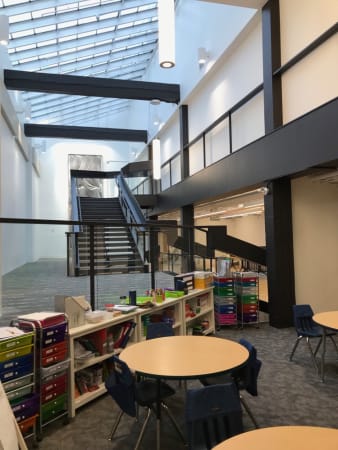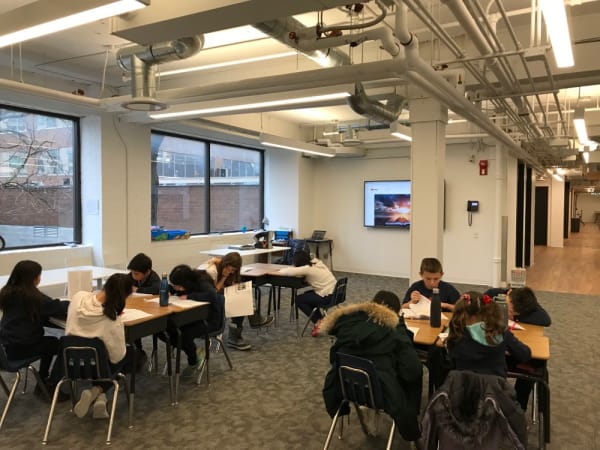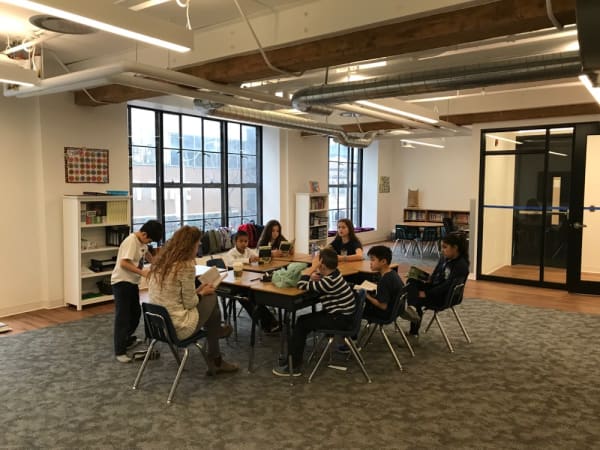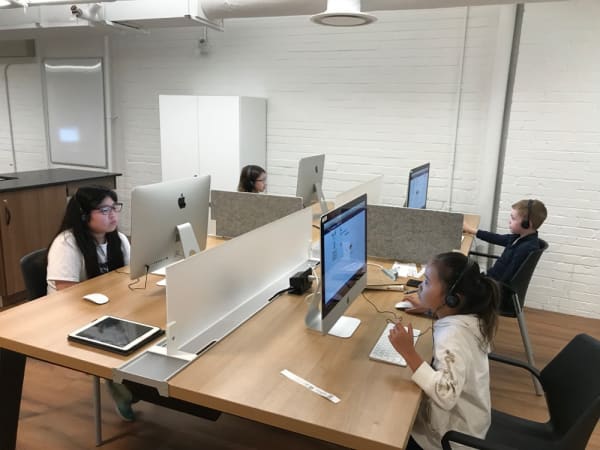How we see The Dalton School
Compare with:
How The Dalton School sees itself
"Established in 2012, The Dalton School is a warm, enriched environment where young minds can truly grow and develop. We are a dual-language school for children in JK - Grade 8, where all core grade level academic subjects, including reading, writing, math, science and social studies are taught in two languages by native speaking teachers."
"Our curriculum is unlike any other school in Toronto. We are the only totally immersive English/Mandarin school in our city with a curriculum designed to help our students achieve superior academic proficiency in both languages. We do this, by exposing our students to an enriched program that not only focuses on academic excellence, it also promotes inquisitiveness, curiousity and innovation from an early age."
"According to research, English speakers use mainly the left side of their brain, while those who speak English and Mandarin use both of their brain’s temporal lobes, dramatically improving their chances of both academic and career success. For example, this stretching of cognitive muscles has been proven to improve a child’s proficiency in subjects such as math, as well as improve their executive functioning and decision-making ability."



/Users/Admin/Desktop/IMG_0137.jpeg























How people from the school’s community see The Dalton School
Top-down influence on the school’s direction and tone

Rebecca Soil, Principal
Dear Parents and Guardians,
Welcome to The Dalton School! I am sincerely grateful that you have chosen us as one of the potential places to educate your child.
The Dalton School offers your child the truly unique opportunity to be fully immersed in both an English and Mandarin environment that integrates language and academics.
There are so many advantages to attending our school. Your child will build on their English academic skills, while learning Mandarin and thus become bilingual in two languages.
Research has proven that there are developmental benefits associated with a bilingual education. It is highly stimulating to the brain, stretching cognitive muscles and dramatically improving a child’s proficiency in subjects such as math. Importantly, the rewards continue in later years. A dual-language English/Mandarin education improves a child’s chances of both future academic and career success.
Learning in a highly nurturing environment will provide your child with the cultural awareness and sensitivity they need to engage and succeed in today’s multicultural world. Students will become conversant, in arguably, the two most significant languages on our planet - spoken by billions of people – opening all kinds of doors and opportunities.
I am proud to be the Principal at what I believe to be a school that is unlike any other in our city. I hope you enjoy learning about us and I would be happy to schedule a tour for you at our wonderful new facility.
I look forward to welcoming you and your child to our community.
Mrs. Rebecca Soil
Principal
If you’re considering a small school for your extroverted child, make sure it offers plenty of social opportunities, including the ability to seek out and interact with different peer groups. Since smaller schools have smaller and less diverse student populations than big schools, it can sometimes be more challenging for your child to find a like-minded group of friends—friends with similar interests, values, etc.
“It’s important to look at the social makeup of the school,” says Ruth Rumack of Ruth Rumack's Learning Space. "Is there enough variety that your child will have a group that they feel connected with? Because you want to have friends that are like-minded and you want to be in a social situation where you feel honoured and respected. Variety can also be found in extracurriculars, leadership programs, and sports activities, which tend to have kids with a wide range of personalities.”
Also, make sure a school’s teaching and learning approach is suitable for your social child. “For instance, a school focusing on individual learning instead of group learning may not play into your child’s strengths,” say Ann and Karen Wolff, Toronto-based education consultants at Wolff Educational Services. “You want to make sure the social, emotional, and academic realities of the classroom are a match for your child’s personality.”
If you’re considering a language immersion school for your extroverted child, make sure it offers a wide range of social opportunities, including the ability to interact with kids outside of class. Since most of your child’s learning won’t be in their mother tongue, they may find it challenging at times to negotiate the complexities of social interaction in the classroom. This makes it especially important to ensure the school offers extensive extracurriculars—such as volunteering, sports teams, and arts programs—which will help your child satisfy their need to interact and make friends.
Smaller schools often have small classrooms and tight-knit communities, which can make it easier for your introverted child to come out of their shell, make friends, and feel like they belong. Since they’re less socially overwhelming, your child should find it easier to navigate their social environment. And since they’re conducive to group work, small classes often have plenty of interaction, which can help your child develop critical interpersonal skills.
Of course, small schools normally have a less diverse student population than big schools, which can sometimes make it more challenging to find a group of like-minded peers—peers with similar personalities, interests, values, etc. This makes it especially important to ask a school about its extracurricular programs, which can help your introverted child establish an intimate social circle.
If you’re considering a language immersion school for your introverted child, make sure it offers plenty of social opportunities, including the ability to interact with different peer groups outside of class. Since most of your child’s learning won’t be in their mother tongue, they may find it challenging at times to negotiate the complexities of social interaction in the classroom. This makes it especially important to ensure the school offers extensive extracurriculars—such as student council, volunteering, and team sports—which can enable your child to connect with peers, make new friends outside of class, overcome their shyness, and develop critical social skills.
THE OUR KIDS REPORT: The Dalton School
Next steps to continue your research:
Continue researching The Dalton School with OurKids.net, or visit school website.